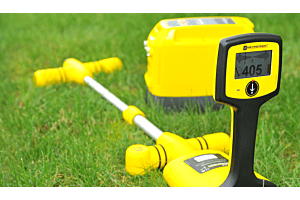
Cable Locators in the Electrical Industry
Imagine you're an electrician tasked with installing new electrical lines or repairing existing ones underground. The underground world is a maze of potential hazards, and one wrong move could lead to severe injuries, costly damages, or even fatalities. This is where cable locators come into play. These essential tools are revolutionizing the electrical industry by providing a safer, more efficient way to locate underground cables. In this comprehensive guide, we'll delve into the indispensable role of cable locators for underground work, how they work, and why every professional electrician should have one in their toolkit.
How Cable Locators Work and Their Benefits
The Working Mechanism
Cable locators operate using electromagnetic signals or radio frequencies to detect underground cables. When a locator is passed over an area, it picks up these signals emitted by live cables, providing real-time feedback through visual or audible signals. This allows electricians to mark the exact location of these cables before any digging or drilling takes place.
The Benefits
- Enhanced Safety: One of the most significant advantages is the enhanced safety measures. Underground cables can carry high-voltage electricity, and any contact can result in severe injuries or fatalities.
- Efficiency and Time-Saving: Cable locators eliminate the need for trial-and-error methods, providing accurate readings within seconds. This saves valuable time and minimizes the risk of damaging existing infrastructure.
Types of Cable Locators and Their Applications in Electrical Work
Electromagnetic Locators
These are the most common types of cable locators. They are ideal for locating utility lines, water and gas pipes, and telecommunications cables underground.
Ground Penetrating Radar
This type of locator is used for more complex tasks, such as locating non-metallic utilities like plastic water pipes underground.
Factors to Consider When Choosing Cable Locators
Signal Strength
The strength of the signal is crucial for the accuracy of the locator. A weak signal can result in false readings.
Durability
Given that these tools are used in rugged conditions, durability is a key factor to consider.
Price
While high-end models offer more features, it's essential to choose a locator that fits within your budget but doesn't compromise on essential features.
Best Practices for Using Cable Locators in Underground Electrical Projects
- Pre-Scan the Area: Before starting any project, it's advisable to scan the area to get a general idea of where underground cables might be located.
- Use Appropriate Frequencies: Different cables require different frequencies for accurate location.
- Regular Calibration: Ensure that your cable locator is regularly calibrated for accurate readings.
Common Challenges and Troubleshooting Tips for Cable Locators
Interference
Electrical interference from other sources can affect the accuracy of cable locators. In such cases, adjusting the frequency can often solve the problem.
Battery Issues
Always ensure that the locator's battery is fully charged before starting a project to avoid interruptions.
Essential Cable Locators for Electricians in the Electrical Industry
When it comes to underground electrical work, cable locators are the go-to tool for every professional electrician. They are not just an add-on but an essential part of an electrician's toolkit for underground work.
Conclusion
Cable locators are an indispensable tool in the electrical industry for underground work. They offer a range of benefits, from enhancing safety to improving efficiency. By investing in a high-quality cable locator, electricians can not only make their job safer but also more efficient.
FAQs (Frequently Asked Questions)
- What is the importance of cable locators in the electrical industry for underground work?
Cable locators are crucial for enhancing safety and efficiency in underground electrical work. They provide accurate location information about underground cables, minimizing risks and disruptions.
- How do cable locators work?
They work by detecting electromagnetic signals emitted by underground cables, allowing electricians to pinpoint their exact location.
- What are the different types of cable locators for underground work?
The main types are electromagnetic locators and ground-penetrating radar.
- What factors should I consider when choosing a cable locator for underground work?
Consider factors like signal strength, durability, and price when choosing a cable locator.
- How can cable locators improve the efficiency and safety of underground electrical work?
By providing accurate and real-time information about the location of underground cables, cable locators allow electricians to work more efficiently and safely.






Login and Registration Form